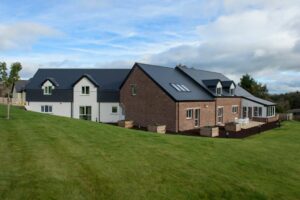How Do Nursing Homes Monitor Daily Activities of the Elderly?

Outside the hospital, a nursing home represents the highest level of care for adults. Usually, nursing homes would provide custodial care-giving assisted living to individuals who require 24-hour medical care and supervision.
And, this is what makes nursing homes different from regular senior home facilities or alternatives such as live-in care. As opposed to a care home, nursing homes are equipped with qualified healthcare professionals who oversee each patient’s care. Also, a nurse or any other certified medical professional is always on-ground. Thus, a nursing home would usually provide residents with a higher level of medical care.
However, aside from medical care, how exactly do nursing homes monitor the daily activities of the elderly in their care? As we answer this question, you’d soon see how technology has found its way into our nursing homes.
The advent of smart nursing homes- Inculcating technology into our nursing homes.
Due to demographic changes such as the rising senior population and medical changes such as the shift to prevention and disease management, rather than acute care, the pressure placed on healthcare settings creates a need to bring on technology into the dealings of nursing homes.
The technology used in nursing homes today has just one function: to improve the quality and efficiency of care by focusing majorly on remote health and safety monitoring systems.
Here are some practical ways technology is used in monitoring elderly in nursing homes:
Storage and retrieval of health data
Gone are the days of paper and pen! Through the use of care management software, face sheets become a thing of the past. Alongside being difficult to move around, hardcopy documents are very susceptible to damage.
Through the simple use of software, nursing homes can maintain a digital record of their service users. To top it up, using the rich data field contained in the digital record, healthcare professionals get to use an online analytical feature.
Medical records that can be monitored through this means include:
- Resident identification
- Care plan and delivery
- Nursing documentations
- Progress notes
- Reports from labs such as x-rays and diagnostic tests
- Physicians orders and progress notes
- Medication and treatment records
- Nutrition services
- Activity and administrative documents
- Social service documentation
- Other related hospital records
Through the use of technology, inefficiency is driven out through the doors of nursing homes, reducing error and leading to proper monitoring of the elderly.
Nursing home cameras- Yay or nay?
Asides monitoring patients medically, nursing cameras could be used to ensure the physical wellbeing and security of the elderly placed in security homes.
To be clear, there are no laws mandating the use of cameras in nursing homes. So, more often than not, the decision to use cameras lies in the hands of nursing home administrators.
That said, you should be aware that most nursing homes use cameras mainly to ensure the security of the elderly in their care – placing cameras in common areas, parking lots and exits. In some cases, cameras could be installed in a resident’s private room.
Before choosing to install a secret camera in the private room of your elderly residents, care home owners should carefully weigh the pros and cons.
To begin with, a major advantage of cameras is that they are good sources of video evidence in case allegations of verbal or physical abuse of an elderly resident arise. Cameras can also reassure relatives that their loved ones are being cared for.
However, there are some cons. Firstly, cameras could invade the privacy of other people within the nursing home – such as the roommates of the seniors and the staff working in the nursing home. For this reason, many nursing homes resist the idea of cameras. Also, if a secret camera is found, it could lead to the violation of local laws and ultimately, the removal of your elderly from the nursing home.
Before installing a camera, you should get the consent of your elderly, the roommates, and nursing staff. You should also verify the local laws around that area.
Conclusion
The advent of technology has made monitoring of elderly more efficient! Before choosing a nursing home, be sure to understand the methods chosen by the nursing home to ensure proper care for your elderly.





